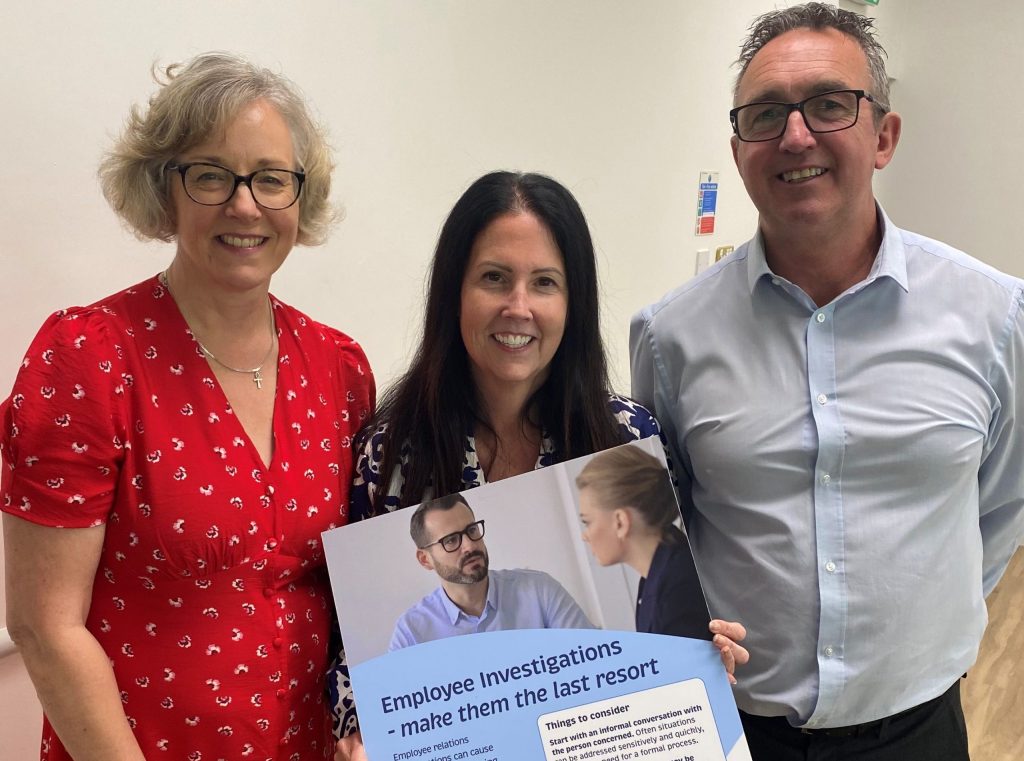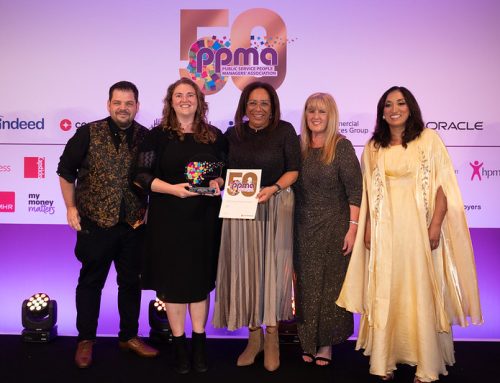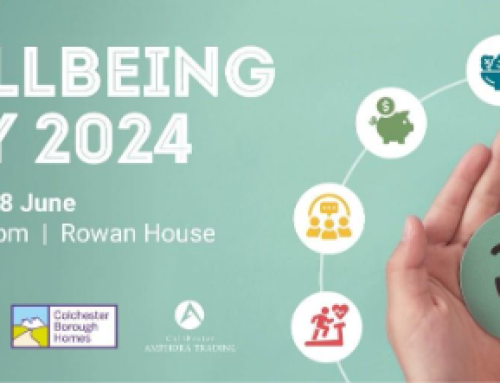
Hello PPMA Members and friends
Our blog this week features insights from Debbie Hughes, Service Director for Organisational Development at Rhondda Cynon Taf County Borough Council, who has been collaborating with Andrew Cooper from Aneurin Bevan University Health Board. Together, they’ve been working on an innovative programme to improve how disciplinary policies and processes are applied — recognising the real impact and harm that can occur when they’re not handled well.
“We knew that the way we were running our disciplinary processes needed a rethink.
We had seen cases drag on for months, causing immense stress to the individuals involved, draining HR resources and organisational budgets. And at the same time impacting wider organisational culture, down to its ability to deliver services.
Questioning the status quo
For us, our journey began when I attended a Cardiff University business breakfast on the concept of ‘avoidable employee harm’. The session was delivered by the wellbeing team at Aneurin Bevan University Health Board in NHS Wales.
It highlighted the unintentional harm to staff that can be caused when we blindly follow policy and procedure in organisations. It resonated with me, especially given the stories we were hearing in our Occupational Health team about employees falling ill due to the stress of disciplinary investigations. It became clear that while formal processes have their place, their overuse had the potential to cause significant, unintended damage.
This prompted us to take a hard look at our own data across Rhondda Cynon Taf County Borough Council. We found that a significant number of our investigations – around 30% each year – resulted in no major action or only a low-level sanction. In real terms that meant that during 2023, approximately 37 people were put through a traumatic, and very likely unnecessary process.
When you consider the average length of a misconduct investigation was 67 days, and the potential knock-on effect that has for staff absence and associated costs, it became evident that we needed a different approach. With the backing of our senior management team, we started to think about what we could do differently.
Moving to a last resort mindset
Our new approach champions using formal disciplinary proceedings as a ‘last resort’. This doesn’t mean abandoning disciplinary investigations as there will always be times where formal process is needed. Instead, it’s about ensuring disciplinaries are pursued only once all alternative resolutions have been explored.
A critical element of this shift has been the implementation of a new initial assessment document. This tool encourages managers to gather comprehensive information about an issue, considering not just the immediate problem, but also the broader context of the employee’s history, training, and even personal circumstances. This allows for more informed decisions and ensures that we’re seeing the whole person, not just the issue. It also provides a vital record of our decision-making process, which was previously lacking.
We started rolling out our new approach within the Adult Services directorate, an area with specific safeguarding and reporting needs. That turned out to be very useful as those managers helped us to coproduce an approach that worked even in the most complex of settings. Despite some operational challenges, the reception from managers in the directorate, who already felt ethically aligned with the concept, was incredibly encouraging.
Empowering managers and shifting culture
We’ve since rolled out the new approach across all divisions of the council. Over 280 managers have received training, and the approach is thoroughly embedded. captures responses from managers just after one of the training workshops and highlights cultural shift everyone has felt.
One of the most profound changes we’ve seen is in the mindset of our HR colleagues. They are increasingly embracing a coaching role, empowering managers to take ownership of staff management, rather than simply being the ‘doers’ of disciplinary processes. This has been a huge undertaking, requiring us to upskill our HR team and help them develop the skills needed for this new way of working. We’re even introducing quarterly case discussions within HR to foster peer learning and continually build on this new approach.
An example of the impact of the work involved multiple employees in the same team, who were accused of maladministration. Previously, it’s likely that this would have led to a formal disciplinary process for all those members of staff, potentially resulting in suspensions, dismissals and a significant resource drain. However, in applying the new assessment process and considering the wider context, we opted for management discussions and identified a need for training rather than sanctions. The outcome was a win-win: employees were grateful, trade unions were supportive, and we now have a more engaged and higher-performing team.
This demonstrates the potential for substantial organisational cost savings (cutting unnecessary spend on recruitment, backfilling, wasted HR time and legal costs), not to mention the reduction in lost sickness days, impact on service delivery and staff wellbeing.
Looking ahead
While we’re still in the early stages of a full evaluation, the anecdotal evidence and the palpable shift in our organisational culture are incredibly promising.
This work has truly led to a cultural shift, moving beyond disciplinary processes and becoming a broader commitment to avoiding employee harm across the council. I would encourage other councils to consider adopting a similar approach. The benefits – in terms of employee wellbeing, organisational culture, and significant cost savings – are undeniable. We have found it to be a rewarding journey that ultimately leads to a better outcome for everyone.”
Find out more …
Watch the video to find out more about the work at Rhondda Cynon Taf County Borough Council in Wales
If you would like details about the ‘Improving Employee Investigations’ programme and training, email [email protected] or call 01633 234888.















